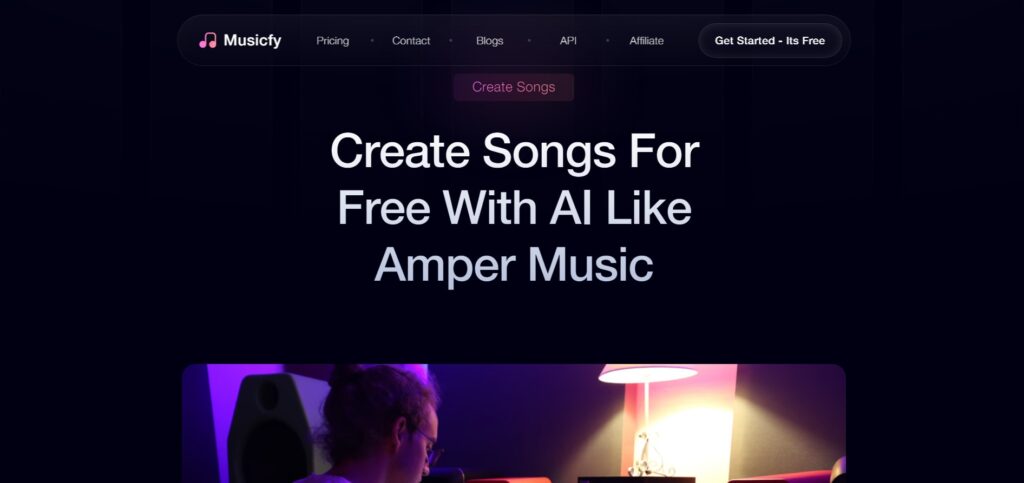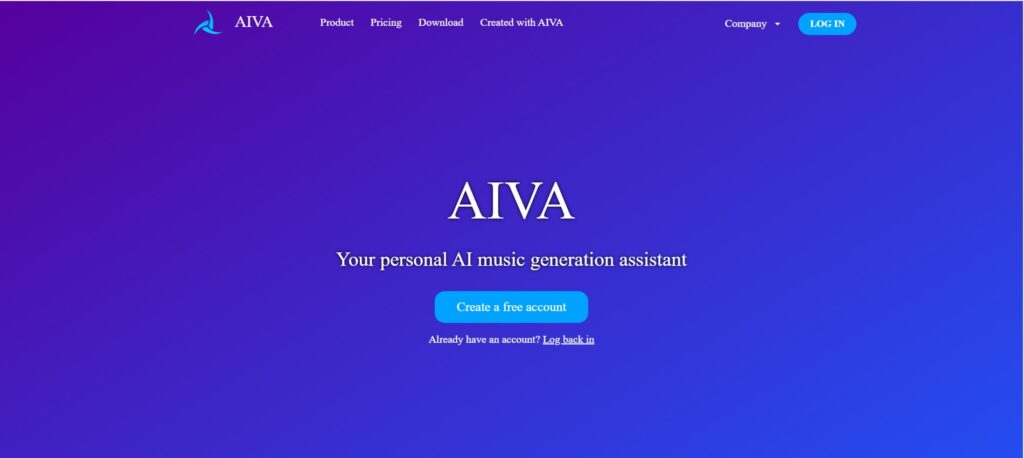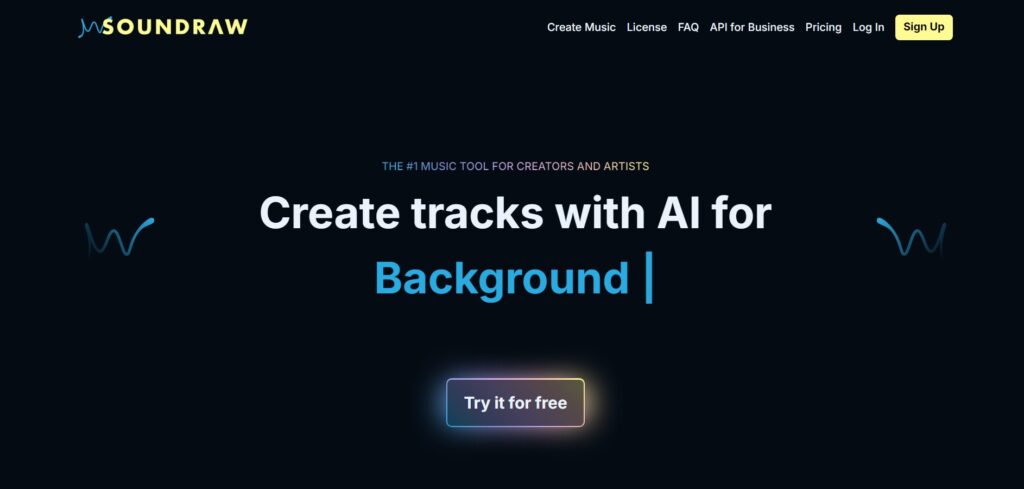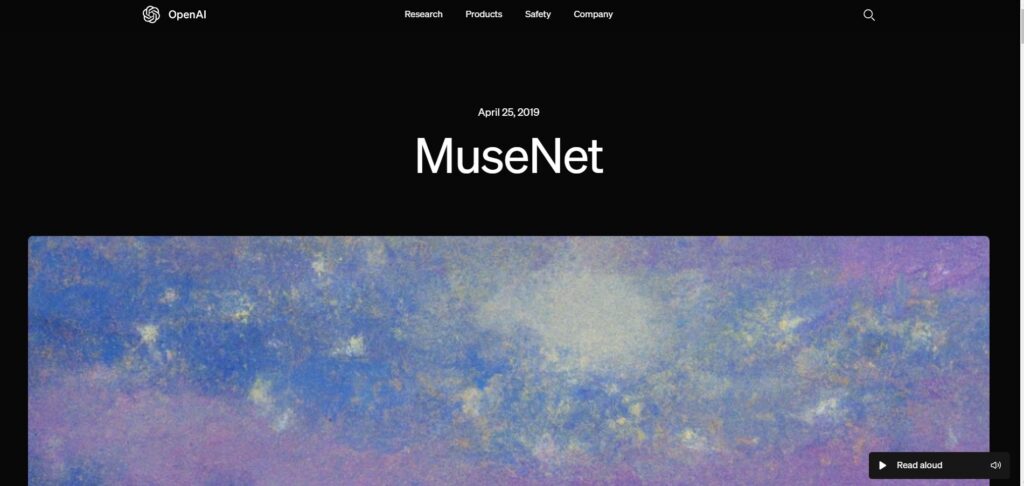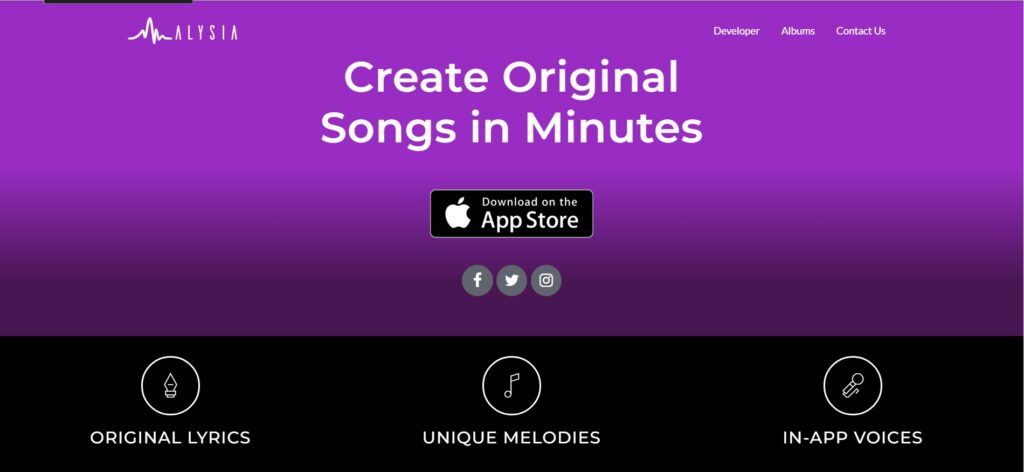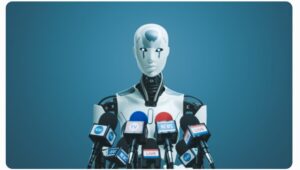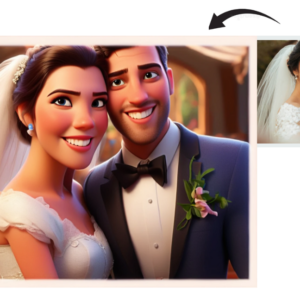AI Music Generator
Best 15 AI Music Generators
AI technology has made remarkable strides in recent years, transforming everything from writing and image creation to website building and voice generation. These advancements have reshaped the digital world as we know it.
Now, with the rise of AI Music Generators, this groundbreaking technology is entering the music industry. Today, we’re taking a closer look at the potential of these innovative tools!
In this article on the Best AI Music Generators, we’ll share our carefully curated list of the 15 Best AI Music Generators, chosen after thorough testing and research.
Ready to discover some exciting AI music tools? Let’s dive in!
1. Amper Music
Amper Music is a cloud-based AI music generator that helps users create unique music tracks in minutes. It is ideal for content creators who need custom music without the hassle of licensing issues.
Use Cases:
- Content Creators: Create background music for videos, podcasts, or streams.
- Advertisers: Generate unique music tracks for commercials and promotional materials.
- Game Developers: Produce dynamic soundtracks for video games.
- Corporate Presentations: Add custom soundtracks to corporate videos or presentations.
- Musicians: Use as a starting point to build upon for more complex compositions.
2. AIVA
AIVA (Artificial Intelligence Virtual Artist) is an AI music composition tool that creates emotional and cinematic music. It’s popular for film scores, video games, and other content that requires emotional impact.
Use Cases:
- Film Scoring: Generate custom orchestral compositions for films and short videos.
- Video Games: Create immersive soundtracks that adapt to gameplay.
- Artists and Musicians: Use AIVA as inspiration for new musical ideas.
- Podcasters: Produce background music to enhance storytelling and engagement.
- Marketing: Create music that matches the mood and tone of marketing videos.
3. Soundraw
Soundraw is an AI-driven platform that allows users to create royalty-free music with customizable features. Users can adjust different elements of the music, such as mood, length, and tempo, to match their specific needs.
Use Cases:
- YouTubers and Streamers: Create music that fits specific themes or scenes in videos.
- Commercials and Ads: Produce custom soundtracks for advertisements.
- Indie Game Developers: Use AI to quickly generate background music that enhances gameplay.
- Website Backgrounds: Add subtle music to websites or online content for better user engagement.
- Product Demos: Create music that syncs with product showcases or tutorials.
4. Boomy
Boomy allows anyone to create AI-generated music and even release it to major streaming platforms like Spotify. It’s designed to democratize music creation, making it easy for non-musicians to create tracks and earn revenue from them.
Use Cases:
- Aspiring Musicians: Quickly produce tracks and release them on streaming platforms.
- Social Media Creators: Add custom music to posts, stories, or videos.
- Podcasters: Create unique intro and outro music for podcasts.
- Brands: Develop custom music to use in marketing campaigns or brand videos.
- Personal Listening: Create personalized tracks based on your preferences for casual listening.
5. Ecrett Music
Ecrett Music is an AI music generator designed to help video creators make royalty-free music. Users can easily select scenes, moods, and genres, and the AI generates fitting music tracks instantly.
Use Cases:
- YouTubers: Enhance videos with custom music tracks that match the content’s theme.
- Social Media Marketers: Create music for Instagram or TikTok videos to make them more engaging.
- Indie Filmmakers: Use AI-generated music for indie films and documentaries.
- Corporate Videos: Develop music for product demos, explainer videos, or training materials.
- Live Streamers: Generate background music for streams to improve viewer experience.
6. OpenAI’s MuseNet
MuseNet is an AI-powered music generator developed by OpenAI that can create songs in up to 10 different instruments and in various musical styles. It uses deep learning to compose complex pieces that sound like they were made by a human composer.
Use Cases:
- Musicians: Use MuseNet as a tool for inspiration or collaboration in song production.
- Researchers: Explore AI-generated music for research in artificial intelligence and creativity.
- Game Developers: Create soundscapes and background music for video games.
- Filmmakers: Produce dynamic music scores for films or trailers.
- Music Educators: Use MuseNet as a teaching tool to demonstrate AI in music composition.
7. Amadeus Code
Amadeus Code is an AI-powered songwriting assistant that helps musicians and producers create new melodies quickly. The app uses machine learning to analyze popular songs and generate new compositions based on learned patterns.
Use Cases:
- Songwriters: Create new melodies and build out songs from scratch.
- Music Producers: Generate ideas for new beats, hooks, or full tracks.
- Indie Artists: Quickly prototype new songs to test different musical concepts.
- Marketing Videos: Produce unique music tracks to accompany promotional content.
- Film Composers: Get new ideas for original scores or background music.
8. Alysia
Alysia is an AI-powered songwriting assistant that generates melodies and lyrics based on user input. It allows artists to collaborate with AI in the songwriting process, offering suggestions for lyrics and compositions.
Use Cases:
- Lyricists: Get AI-generated lyric suggestions to overcome writer’s block.
- Composers: Generate new melodies based on lyrical input or mood.
- Collaborative Music Projects: Use Alysia to co-create songs between artists and AI.
- Music Educators: Demonstrate how AI can contribute to music creation and songwriting.
- Content Creators: Develop music with custom lyrics for video or audio content.
9. Melodrive
Melodrive is an AI music engine that creates adaptive, dynamic music in real-time for video games, virtual reality, and other interactive experiences. It allows developers to integrate music that responds to the actions of the player or user.
Use Cases:
- Game Developers: Create dynamic, real-time soundtracks that adapt to gameplay.
- VR/AR Developers: Use adaptive music in virtual reality and augmented reality experiences.
- Interactive Installations: Implement responsive music in interactive exhibits or art installations.
- Film and TV: Use adaptive soundtracks in interactive films or interactive TV episodes.
- Content Creators: Add music that adapts to changes in video or interactive content.
10. JukeBox (OpenAI)
Jukebox by OpenAI is a neural network that generates music in a variety of genres and can also incorporate lyrics. It allows users to explore new music generation methods that blend styles, instruments, and lyrics.
Use Cases:
- Music Researchers: Explore AI’s potential in generating complex musical compositions with vocals.
- Artists and Producers: Experiment with AI-generated music across various genres.
- Music Educators: Demonstrate AI-driven music creation in an academic setting.
- Content Creators: Use AI-generated tracks and lyrics for multimedia projects.
- Entertainment Industry: Incorporate AI-created music into video games, films, or advertising.
11. Endlesss
Endlesss is a collaborative AI-powered music creation platform where users can create, remix, and collaborate with others in real-time. It’s designed for musicians and producers to jam together from anywhere in the world.
Use Cases:
- Collaborative Music Creation: Jam with friends or other musicians in real-time, regardless of location.
- Live Performances: Use Endlesss for live, improvisational music performances.
- Producers: Generate new loops and musical ideas for tracks.
- Music Learning: Use Endlesss to learn by jamming with others and experimenting with different styles.
- Music Streaming: Stream live sessions on platforms like Twitch or YouTube.
12. Splash Pro
Splash Pro is an AI music creation tool designed to make music production accessible to everyone, regardless of skill level. Users can create beats, melodies, and tracks with AI assistance and share them online.
Use Cases:
- Beginner Musicians: Easily create music tracks without needing extensive musical knowledge.
- Social Media Content: Produce quick, catchy tracks for social media videos or ads.
- Podcasters: Generate background tracks for podcasts.
- Music Production: Create original tracks for personal or commercial use.
- Music Education: Teach the basics of beat-making and music theory with an easy-to-use platform.
13. Humtap
Humtap is an AI-powered music app that allows users to hum or sing a melody, and the AI converts it into a full music track, complete with instruments and beats. It’s perfect for those who want to quickly bring musical ideas to life.
Use Cases:
- Songwriters: Hum a melody and turn it into a fully produced track within minutes.
- Content Creators: Quickly create music for video content by humming the desired tune.
- Musicians on the Go: Capture spontaneous ideas and instantly develop them into songs.
- Personalized Music: Create customized music for personal listening or sharing.
- Music Prototyping: Experiment with different melodies and beats without needing to record instruments.
14. Groov.ai
Groov.ai is an AI tool that generates beats and loops for electronic music genres such as hip-hop, EDM, and lo-fi. It is especially useful for producers who need fresh ideas and loops to build upon.
Use Cases:
- Music Producers: Generate original beats for hip-hop, EDM, and other genres.
- DJ Sets: Create custom beats for live sets or remixes.
- Content Creators: Use unique loops and beats for YouTube or social media content.
- Remix Artists: Get new ideas and beats to remix existing tracks.
- Music Educators: Teach students about beat-making using AI-generated loops.
15. Loudly
Loudly is an AI music platform designed for creating background music for videos, games, and apps. It allows users to generate tracks in various styles and share them on social media platforms.
Use Cases:
- Video Editors: Create custom background music for video projects.
- App Developers: Generate soundtracks for mobile games or apps.
- Indie Filmmakers: Produce music to accompany short films or trailers.
- Social Media Creators: Develop music for TikTok, Instagram, or YouTube content.
- Podcasters: Add music to podcasts to enhance storytelling.
In conclusion:
As we’ve explored, AI Music Generators are opening up a world of possibilities in music, giving us new ways to create, experiment, and streamline the production process. Whether you’re an experienced musician or just starting out, these tools can spark fresh ideas and make music creation more accessible.
From generating original melodies to crafting background tracks, these AI-powered platforms offer a new take on creativity. As the technology grows, we can expect even more exciting innovations in music-making.
So why not dive in and try them out for yourself? The future of music is changing, and with these tools, you can be part of the creative journey!

